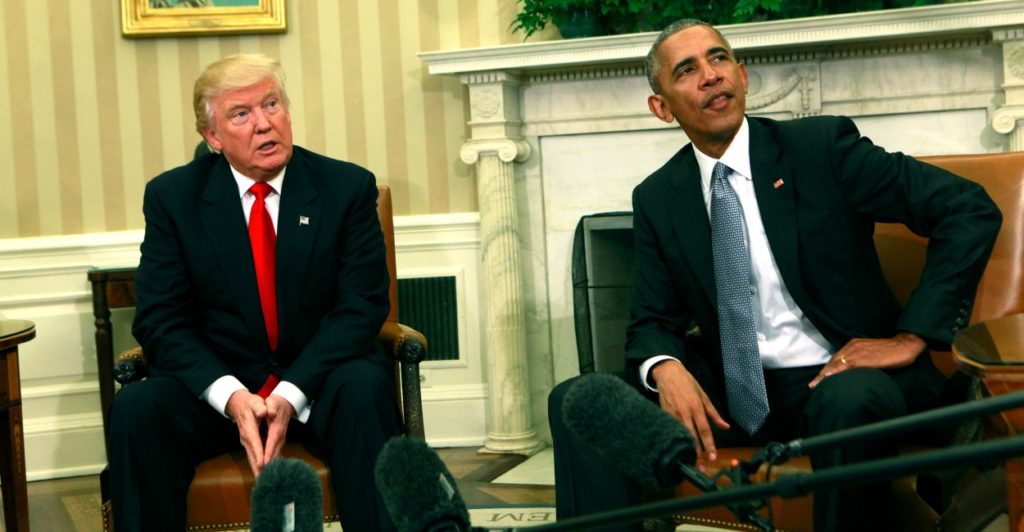Trump Day One Executive Actions Could Include Immigration, Obamacare, ISIS, and Trade
Fred Lucas /
President-elect Donald Trump plans to use “four or five” executive actions on Friday after being sworn into office, incoming White House press secretary Sean Spicer told reporters.
“We’ve talked about that for a few months now—Obamacare, the fight against ISIS, he talked about immigration, key issues that have been important to him throughout the campaign that will continue to be important to him throughout this administration,” Spicer said Thursday at a press briefing.
This comes after Wednesday, when Spicer told reporters that Trump will have “in the area of four or five” executive actions during his first day in office.
During the Thursday press briefing, Spicer said Trump is committed to using executive actions beyond Day One.
“You’ll see some activity on both tomorrow, over the weekend, and then Monday, Tuesday, Wednesday,” @seanspicer says.
“I think the president-elect is still working through which [executive actions] he wants to deal with tomorrow versus Monday or Tuesday,” Spicer said.
When later asked about trade, Spicer said Trump will move on taking action on the North American Free Trade Agreement and the Trans-Pacific Partnership.
“Part of what he announced in the executive order list, around Thanksgiving time, included actions on both TPP and NAFTA that will be done by executive order,” Spicer said. “So I think you will see those happen very shortly.”
During the campaign, Trump announced his first action to protect American workers will be to announce his plan to renegotiate the North American Free Trade Agreement, a trade deal between the United States, Canada, and Mexico, with the threat of withdrawal if necessary. He also intends to withdraw from the Trans-Pacific Partnership, an 11-nation trade agreement negotiated by the Obama administration.
Ditching the Trans-Pacific Partnership would be largely symbolic because the agreement is essentially dead on arrival in Congress. But early executive actions by presidents are frequently symbolic, to mark a turning of the page in policy, said Dan Mahaffee, vice president for the Center for the Study of the Presidency & Congress, a nonpartisan education and public policy organization.
“Early in administrations, executive actions are used to fire up the base, but it also fires up the opposition,” Mahaffee told The Daily Signal.
Trump’s first 100-day plan, which includes potential executive actions on immigration, ethics, and energy, says he will “cancel every unconstitutional executive action, memorandum, and order issued by President [Barack] Obama.”
Geoffrey Skelley, a political analyst with the University of Virginia’s Center for Politics, anticipates more than symbolism from Trump’s earliest days.
“On one hand, symbolism could be a good place to start while the administration figures out how to implement a certain policy, but at the same time, I’m more inclined to think Donald Trump will run right into the fire,” Skelley said.
In the 100-day plan, Trump has said he would impose a lifetime ban on former White House staffers becoming lobbyists for a foreign government.
He also pledged to lift restrictions on energy production, which could include reversing Obama’s executive-imposed Clean Power Plan, for what he said would be $50 trillion worth of jobs.

President-elect Donald Trump could undo some of President Barack Obama’s executive actions with his own. (Photo: Dennis Brack/Newscom)
With regard to immigration, the Islamic State, and Obamacare, some actions could be broad. For example, a president has wide latitude as commander-in-chief to combat the Islamic State.
Only Congress can repeal Obamacare. However, Trump could reverse some of the executive enforcement actions by the Obama administration, such as directing the Department of Health and Human Services to end mandated insurance coverage for abortion-inducing drugs, contraception, and therapy or surgery for gender transition.
On immigration, which was a signature issue for Trump during the campaign, he has said one of the actions he would take in the first 100 days is canceling federal funding to sanctuary cities or municipalities that don’t enforce federal immigration law.
Trump has also vowed to begin removing more than 2 million criminal illegal immigrants from the country, which is largely a federal law enforcement matter.
